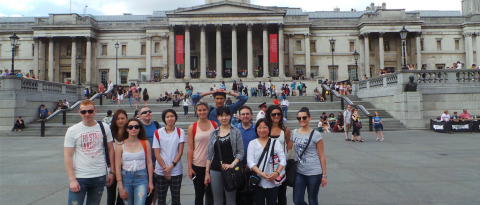When the time comes for you to go to university, the decision is not to be taken light-heartedly or on the spur of the moment. You should imagine your future, visualize your career and contemplate on your personal and professional accomplishments.
“Where can I study and how do I go about it? Do I have the prerequisites to enrol at a British university?”
There is no doubt that doing a preparation course in the language of the country you have chosen to continue your higher education at, has the advantage of your being constantly exposed to that language, facilitating your day-to-day communication and effectively raising your academic propensity.
Adjusting to the social environment of a country, in advance of your commencing your graduate studies, is a key success factor in your ongoing education, since you will already be familiar with the day-to-day way of life and not be preoccupied with niggling issues of adjustment. It allows you to devote considerably more time to your studies and to concentrate on your academic performance.
Thus, those who decide to follow a preparation course for the university in the country of their choice will have the comparative advantage of getting into their studies immediately since they will have already adapted to their new environment.
Preparation courses are held in either public or state educational institutions, with numerous alternatives and options depending on your preferences and requisites.
GREAT BRITAIN
Probably the most popular student destination, Britain attracts thousands of young people from around the globe to its hundreds of universities.
Universities with a heritage of hundreds of years, but also ones more recent and contemporary, are called upon to meet the educational requirement of the ever growing need for degrees in the professions of the future, by offering a range of courses and combinations of scientific disciplines that can cover even the most demanding student.
Bachelor level studies
Many students choose a British university for their first degree.
Following a standardized procedure, students declare their universities of choice through UCAS, the central organization for admission to Britain’s universities and colleges.
To attend higher education in Great Britain, besides the UCAS application, one needs to meet certain criteria. Entry conditions vary by university and per direction of study, but in general they are a combination of the following:
• National High school diploma
• International Baccalaureate (IB) Diploma
• A-Levels
• Foundation courses
• Access to Higher Education courses
• Certificate of knowledge of the English language (IELTS, TOEFL, Cambridge English: Advanced, Cambridge English: Proficiency)
• Interview (where applicable)
• Certain universities may require their own ' Entry Evaluation' consisting of a specialty test.
